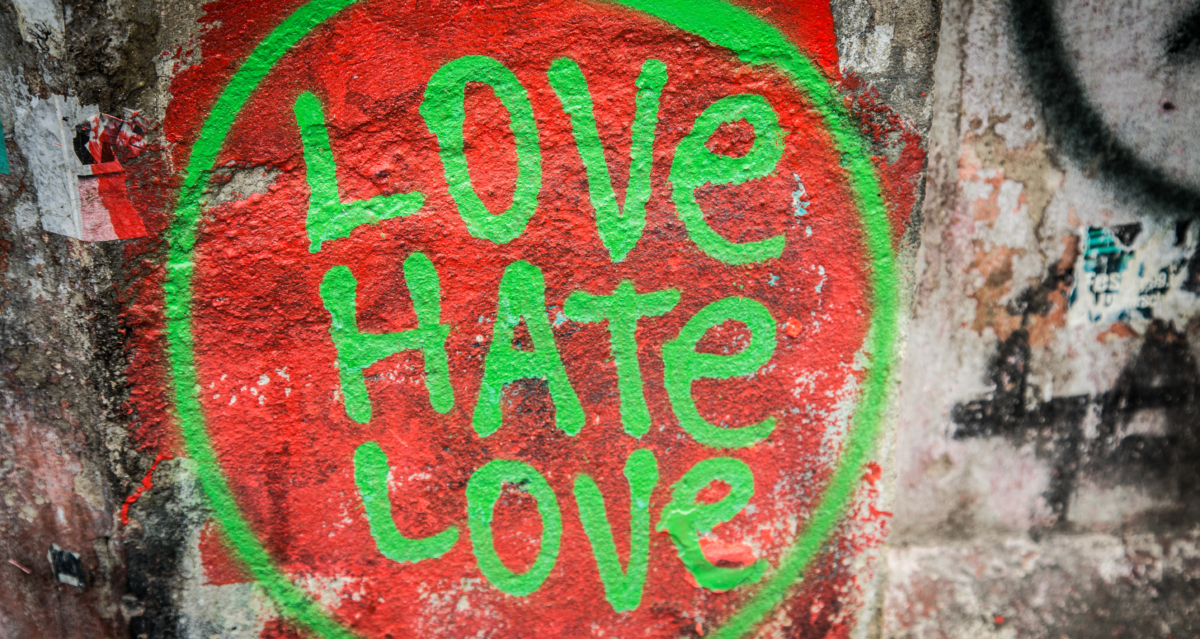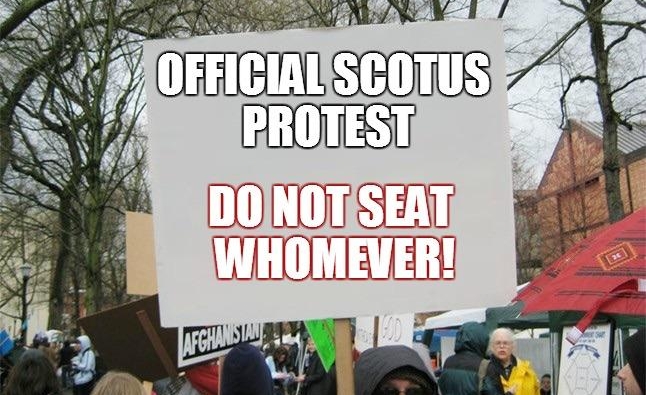I made my mind up last night that I would not invest any time in actually watching today’s hearing regarding the accusations by Dr. Christine Blasey Ford against Supreme Court nominee, Judge Brett Kavanaugh.
This is not mere caprice; I try to avoid all such hearings because I always find myself heartily despising every politician involved, which is not good for my soul, and because between the grandstanding, the partisan talking heads spinning for whatever “side” they’re on and the general sense of everyone — including witnesses — couching every word as carefully as possible in order to hide as much as possible, or to manipulate perceptions, I generally sense that, absent irrefutable evidence (which never shows up in these cases) I will come away frustrated and confused in equal measure, and ever more distrustful of our leadership as Paul’s words to the Romans play a continuous loop in my head, “There is no one who is righteous, not even one…”.
In general, transparency is absent from these proceedings, and truth becomes whatever we want to believe, depending upon what ideological idol we are inclined to serve. I believe and disbelieve aspects of both the Ford and Kavanaugh narratives, and fully realize that my thoughts will have no influence on either outcome, so I have kissed it all up to God, and moved on.
The positively negative
So, I have skipped the proceedings, intent instead on getting work done and only posting interesting, unifying and hopefully positive things on social media. I started off by posting to twitter a prayer that had nothing to do with outcomes.Dear Lord, this nation is about to endure a very difficult day. We beg your Presence at these proceedings, for You are Mercy; You are Justice; You are Peace. Please send your angels among us, to guide us and save us from our instincts to make idols of our ideologies. Amen. pic.twitter.com/LpfUEcXRs1
— Elizabeth Scalia (@TheAnchoress) September 27, 2018
As usual, my bread cast upon waters came back to me soggy, with some people immediately proving my point about idols of ideology; in quick order people raised their voices to either mock the prayer or direct it toward their favorite players. Being in no mood for that today, I blocked them, which I only do rarely. The partisan embrace of a very non-partisan prayer validated my decision to not watch the hearing.
But when I do have something positive to post on Twitter, I admit to “checking the boxscores,” so to speak, checking out what people are saying.
“What is truth?”
It got me thinking about how we perceive truth, these days. For some people “truth” actualizes when their empathy or their emotion has been tapped into and drawn. For some, legalistic rigor — to the level of nitpicking — defines truth. For still others, it is all about what validates their own belief, or their own life experiences, or what seems “sensible.” And of course, some simply approach every such event as a tribal death match, all but wearing jerseys as they watch or report on their team.We see something similar in the Churches, as well, with some hewing so closely to the letter of the law they can’t see truth through any merciful prism, while for others, what reaches “the ear of the heart” (as Benedict of Nursia put it) is the greater truth.
And then of course, in both the secular and sacred worlds, there are those for whom truth is a completely subjective thing, whittled away from objectivity or empirical evidences, until it is merely an extension of their personal thoughts and feelings, “My truth,” is what people call it — subject to change as mercurially as our moods.
One reason we are such a divided and conflicted society is because the personal truth — “my truth” — has ascended to equality of status (if not dominant, on some issues) with objective reality. If no one has to submit to an idea one dislikes, we will very soon have nothing left to say to each other, about anything. We can all simply plant a flag on our own patch of autonomous truth and proclaim it “black and white, and undeniable.”
Intention matters
All of this makes me very glad that in actual law — both secular and sacred — we have created ways to acknowledge that though perspective and circumstance may color truth, it cannot change it, and all of that coloration resides with the matter of intention. Secularly, if I have run you down and killed you with my car, the motive matters.
- If I meant to do it because you’d annoyed me past endurance, that’s murder.
- If I didn’t mean to do it, but was reckless or under the influence, that’s vehicular manslaughter.
- If I didn’t mean to do it, but was negligent beyond permission, that might be manslaughter, also.
- If I didn’t want to do it, but you were pointing a rifle at me, that’s self defense.
In every case, the truth is I have hit you with my car. Intention and circumstance shade the truth and what my responsibilities to it are, but they change nothing of the basic fact.
In the case of Ford and Kavanaugh I suspect intention plays all kinds of roles in whatever happened or did not happen, in that time and place. High Schoolers intend to party and try to ape what they think adults do, the beer drinking, etc. Most of the time it’s thoughtless:
- Kids may intend to get drunk, but they don’t intend to get sick
- They may intend to flirt but they don’t mean to engage in sex or put themselves at risk
- They may intend to copy the actions of their favorite movie (Caddyshack, Porky’s, anyone?) but not to scare, or rape, or permanently scar
- They may intend to be very bad, indeed
I think the hearings today have a great deal to do with intentions and times — we are quite rightly less tolerant of teenage drinking, we aren’t all that sure anymore that flirting is ever innocent, and no sensible person thinks it’s okay to even “play” at being a sexual aggressor.
So, it comes down to the truth that would be true no matter the intentions: Did a teenaged Brett Kavanaugh do what Dr. Ford claims? Colored by the era and the intentions and perceptions of all involved, I’m not sure we will ever know the whole and certain truth. Hence, we pray for revelation, truth, justice.
Likewise, within the Church, under the sacrament of confession, intention and circumstances color truth and how I must reconcile myself to it, and to God.
Let us thank God, then, that we have ways to tell the truth while deepening our understanding of it, and therefore reasoning with each other and living peaceably together in reconciliation. Perhaps if we stand sure-footedly on that foundation, it can help us in those times when the entire truth is unknowable, and the best we can do is wish each other a tenuous measure of justice, and a desire for peace.
Images: Public Domain



2 Comments
Kathy Salcido · September 27, 2018 at 6:13 pm
Just heard you on Relevant Radio, awesome interview and discussion. I didn’t hear the whole interview, but what I heard magnified my sediments in regards to what is true anymore. I can barely listen or read anything on the news, except Relevant Radio and forums such is yours and “word on fire” that provide information that we can trust. It’s all as if I’m watching a reality show. This is the second time I’ve heard you on Relevant Radio, the first time inspired me to read and post on your blog. I’m grateful for intelligent and faithful reporting that speaks the truth!
joshbraid · September 28, 2018 at 8:30 am
I am in agreement with your position. I think each of us are faced with the choice of asking for vengeance or justice. The sweet appeal is to vengeance, giving me immediate gratification for all of the wrongs done to me, or at least imagined by me. Justice seems so stodgy and definitely does not feel sweet, does not address my pain and suffering. And, I think, this is the key–what do I do with my suffering when I can not get justice? I suggest the spiritual work of mercy, “bearing wrongs patiently” or “bearing the cost”. It is my hope that by bearing the cost of the evil done to me and not resorting to the sweet allure of vengeance, that I will make up in my body what is lacking in the sufferings of Christ (Col 1:24). I can stop at least some of the suffering in this world by not passing it on, by finding Jesus on the Cross in my sufferings and joining mystically with him (re: JPII, Salvifici Dolores). This is what I can do. (For those of you who think I lack empathy for Dr. Ford, I offer the fact that I am a survivor of severe abuse in childhood.)